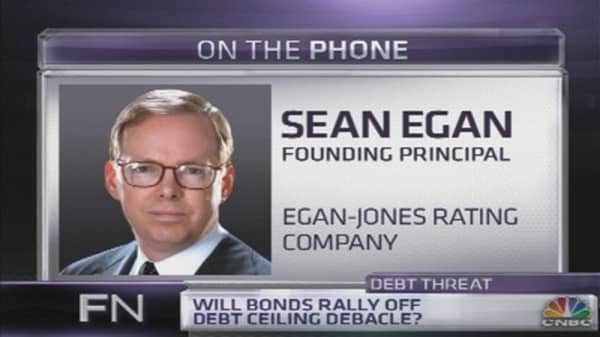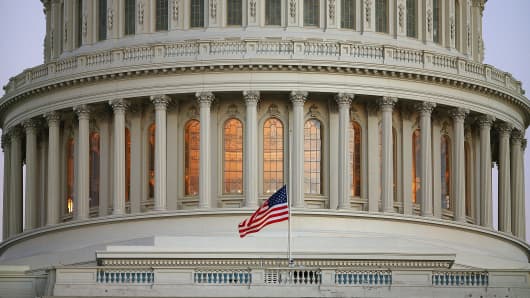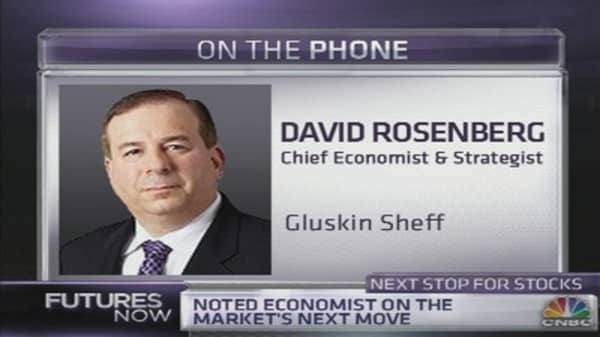"I wish the president would stop campaigning and come over to the Hill and have a conversation with us," Rep. Lynn Jenkins, R-Kan., told CNBC on Tuesday. "House Republicans are prepared to work with this administration [and] Democrats in the Senate to solve the problem, which is our out-of-control, wasteful Washington spending and as long as we can put this nation back on firm financial footing, there should not be a problem here." (Watch the full interview here)
Jenkins, a member of the member of the powerful House Ways and Means Committee, called on President Obama and Senate Democrats to present a budget that would balance the U.S.'s overwhelmingly national deficit.
"We have to take the blank checks away from Washington and cut up the credit card and demonstrate to the American people that we manage our finances the way that they do around their kitchen table," the lawmaker said. "They prepare a budget, they don't spend more money than they take in and so long as Washington begins to operate the way the hardworking American people do, then I will be on board," she added.
—Reuters contributed to this report
Read on for 10 Things You Need to Know to Trade Futures
Watch "Futures Now" Tuesdays & Thursdays 1p ET exclusively on
FuturesNow.CNBC.com
!
Like us on Facebook! Facebook.com/CNBCFuturesNow
Follow us on Twitter!@CNBCFuturesNow
















